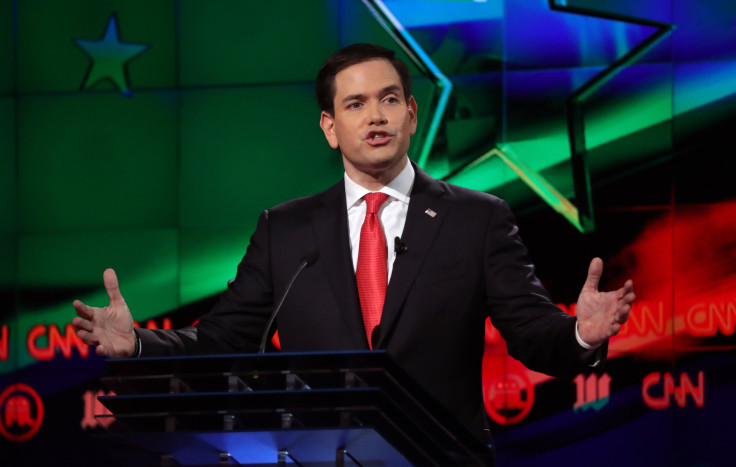Miami Republican Debate: Rubio Rejects Climate Change Science, Says No Law Can ‘Change The Weather’

“Sure, the climate is changing. ... There was never a time when the climate was not changing,” Florida’s Republican Sen. Marco Rubio, fighting to revive his presidential bid, said during Thursday’s GOP debate in his home state. This was the final debate among Republican candidates before a day of important state primaries and caucuses that will be held next Tuesday.
Although the question of climate change was briefly raised during the debate in Miami — a low-lying city that is already feeling the impact of rising sea levels — Rubio steadfastly refused to lay the blame for global warming on human activity.
“I think the fundamental question for a policymaker is, is the climate changing because of something we are doing, and if so, is there a law you can pass to fix it?” Rubio said, when asked whether he would acknowledge the scientific consensus on anthropogenic climate change. “As far as a law that we can pass in Washington to change the weather, there's no such thing.”
Several studies have, in the past, shown that regions in the Caribbean and southeast U.S., including Florida, are “highly vulnerable” to flooding due to a rise in sea levels. According to the 2014 National Climate Assessment report, agricultural areas around Miami-Dade County and southern Louisiana with shallow groundwater tables “are at risk of increased inundation and future loss of cropland with a projected loss of 37,500 acres in Florida” with a 27-inch sea level rise.
Sea levels are expected to rise in southeast Florida by six to 10 inches by 2030.
“Climate change is no longer viewed as a future threat around here,” Ben Kirtman, a climate change expert at the University of Miami, told the Guardian in July 2014. “It is something that we are having to deal with today.”
Reacting to Rubio’s comments, Philip Levine, mayor of the neighboring Miami Beach, said the senator was “100 percent using the language of a climate change denier.”
“Unfortunately, Senator Rubio went to his usual talking points, fed to him by his donors in the sugar and energy industry,” Levine reportedly said, adding that he was more impressed by Ohio Gov. John Kasich, who said he accepts the science of climate change.
Kasich, who is trailing in the polls, is the only GOP contender who has acknowledged humanity’s impact on the climate.
“I do believe we contribute to climate change, but I don't think it has to be a — you know, either you're for some environmental stringent rules or — you know, you're not going to have any jobs. The fact is, you can have both,” Kasich said Thursday. “In our state, we've reduced emissions by 30 percent. But let me tell you also what we're trying to do. We want all the sources of energy. We want to dig coal, but we want to clean it when we burn it. We believe in natural gas. We believe in nuclear power.”
The two other Republican candidates, Donald Trump and Ted Cruz — both of whom have repeatedly denied the existence of climate change altogether — were not asked about their views on global warming during the debate.
© Copyright IBTimes 2024. All rights reserved.





















